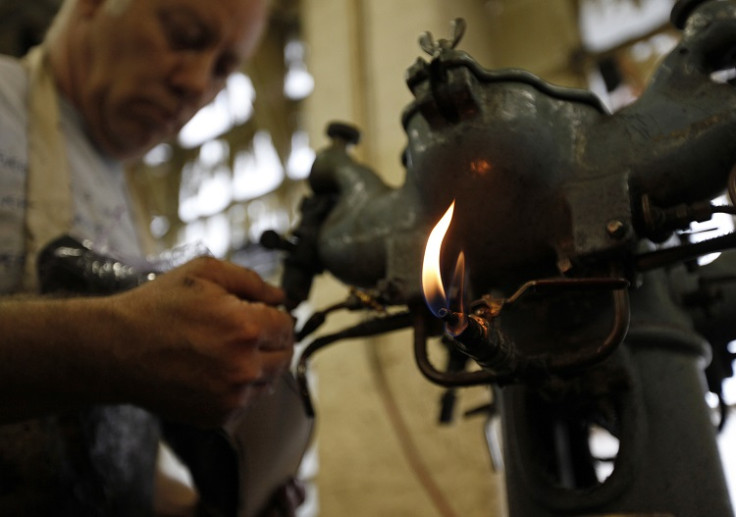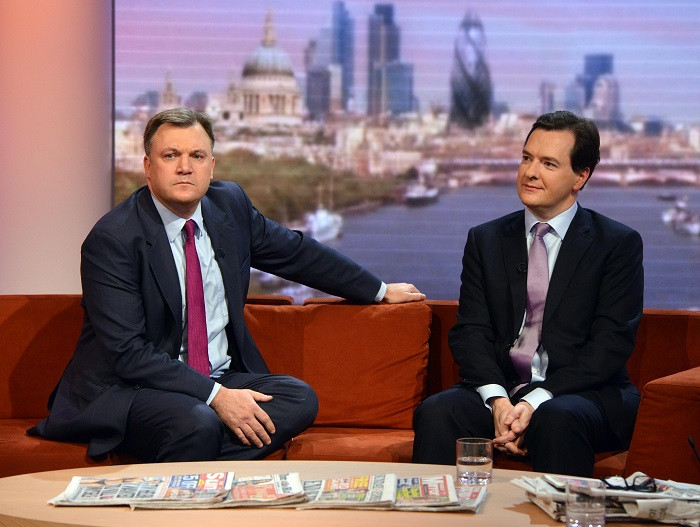David Cameron and George Osborne Celebrate 'Milestone' in Growth Recovery But Gloss Over Caveats

Maybe it is the heatwave but coalition ministers appear to have abandoned their usual caution over welcoming good economic news and pretty much declared the bad times are over.
Prime Minister David Cameron and Chancellor George Osborne claimed the economy had reached a "major milestone" (the agreed government line) and that, inevitably, their long-term economic plan was working.
Deputy Prime Minister Nick Clegg was even more excited, stating it was a "big day for Britain" adding: "The rescue has worked," before claiming it was all because of the Liberal Democrats.
And a tweet from the Tory party press office said: "Nothing to say about the economy then. What a surprise. Labour have nothing to offer Britain's hardworking taxpayers" - even as shadow chancellor Ed Balls was reacting to the news.
Ministers stopped short of popping champagne corks, sticking to the mantra that there was still a long way to go, but the sense of relief and vindication shone through all the reaction. And that led some senior Tories to fear there was a bit too much triumphalism.
There is no doubt the figures are hugely significant and, when combined with good jobs growth, allow ministers to breath a sigh of relief and the 10 months to the general election will offer them more statistics to throw at Labour.
But, as Labour and even some nervous Tories have pointed out, there are some real causes for concern that ministers have chosen to gloss over.
The recovery has been the slowest ever and way behind other countries, notably the US. But it's now the fastest growing economy in the EU.
The growth has been driven almost exclusively by the service industries while manufacturing and construction are still stuck in recession, raising real concerns over the unbalanced nature of the recovery.
And only days ago it was revealed the Chancellor has failed to reduce government borrowing for a year, once again missing his budget targets, and that the housing crisis was nowhere near ending.
But by far the biggest challenge for the government is the fact that individuals' "growth" is not going to show real increase for another three years or so, with wages continuing to be outstripped by inflation, allowing Labour to pose the old question "do you feel better off now than you did in 2010?".
The problem for Labour leader Ed Miliband, though, is the government's campaign to brand Balls as the man who crashed the car has proved highly successful.

There are those in the Labour party who believe Miliband and Balls should have been far more aggressive in their refusal to accept the blame for the banking collapse and the global economic downturn.
They argue the leadership hesitated because they were under more powerful internal pressure for Balls to offer an comprehensive apology for alleged past misdeeds.
He has resisted that but there has been enough hesitation to make a more robust defence of the past record now impossible. And, in any case, it is far from certain voters would buy it.
The upshot of this is that, so long as the big figures continue as predicted, the election will become a simple battle over trust.
Will voters trust government reassurances that, if they stick with Cameron and Osborne their own subjective conditions will start improving, or will they trust Labour to continue the recovery but in a more balanced and equitable way?
© Copyright IBTimes 2025. All rights reserved.






















